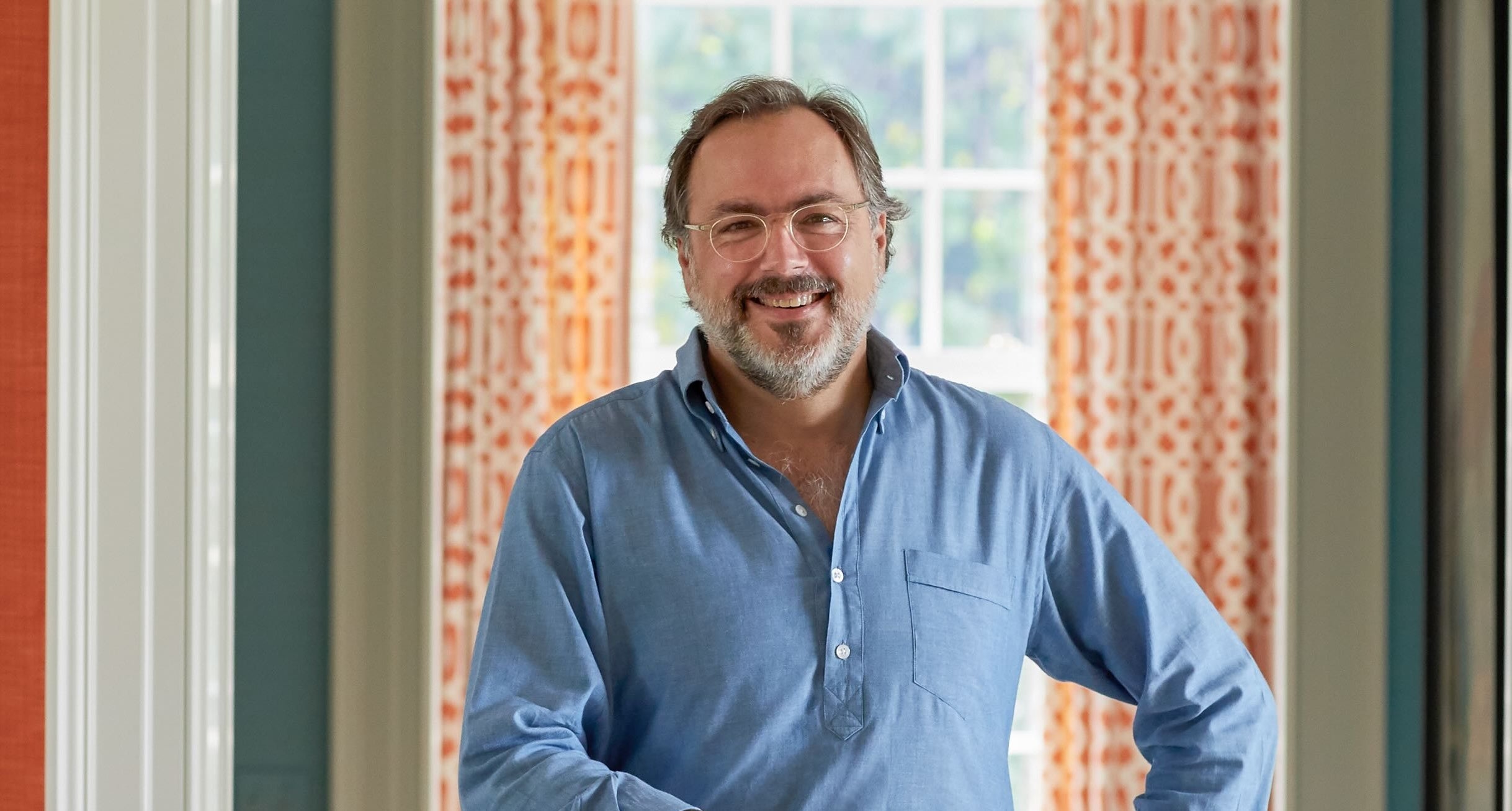Architecture runs in Gil Schafer’s blood. Schafer’s great-great-grandfather was an architect, as was his grandfather; his father studied art history and his stepmother was a decorator. Although he was immersed in the world of design from a young age, no one ever pressured him to join the industry. “[My grandfather] never encouraged me specifically to be an architect, which I thought was so interesting,” Schafer tells host Dennis Scully on the latest episode of The Business of Home Podcast. “I think it might have been because it is a challenging profession. You have to really want to do it on your own.”
After getting his master’s in architecture from Yale, the Cleveland-born Schafer spent nearly a decade at Ferguson & Shamamian Architects in New York after being inspired by a 1991 issue of Architectural Digest that featured a project by Mark Ferguson and Bunny Williams. He left the firm to help manage the Institute of Classical Architecture & Art before ultimately starting his own firm in the city in 2002. Things were going well, and his business grew to 16 employees by 2008, when the financial crash caused him to shrink the team back down to five.
The Great Recession taught Schafer just how indispensable a good financial pro is to a firm’s success, which led him to hire his director of finance and administration, Louis Taylor, now a partner at the company. “Together we kind of dug ourselves out of the trenches and just built little by little with good business practices,” says the architect. He credits Taylor’s strong money management with helping him achieve the business’s subsequent successes: multiple awards, longtime placement on the AD100, and media coverage everywhere from Elle Decor to Vogue to The New York Times.
Elsewhere in the episode, Schafer discusses his most recent book, Home At Last; how becoming a stepfather to two teenagers has deepened his practice; and building spaces that can withstand the test of time.
Crucial insight: A piece of advice Schafer took from his grandfather was that architects need to be well-rounded and personable to get work—wisdom he summarizes with a laugh: “Nerds don’t get clients.” In his grandfather’s day, that meant meeting people on the golf course. The hustle is a little different for Schafer, but the message still rings true, and the natural introvert has learned how to put himself out there, bit by bit.
Key quote: “The more you know, the more you realize you don’t know. The more you learn, the more you realize you have to learn,” he says. “There are certain things that get easier because you’ve done them enough, but then they reveal all these other things that you don’t yet know. Just be open to always learning from other people who can teach you something.”
This episode is sponsored by The Shade Store and Hartmann&Forbes. Listen to the show below. If you like what you hear, subscribe on Apple Podcasts or Spotify.
The Thursday Show
BOH executive editor Fred Nicolaus and host Dennis Scully discuss the biggest news in the design industry, including some worrying inflation numbers, Home Depot’s latest acquisition, and a look at why some homeowners and designers are rejecting the smart home. Later, fund manager James O’Brien discusses earnings reports from RH, MillerKnoll and Wayfair.
This episode is sponsored by Loloi and Annie Selke. Listen to the show below. If you like what you hear, subscribe on Apple Podcasts or Spotify.





























